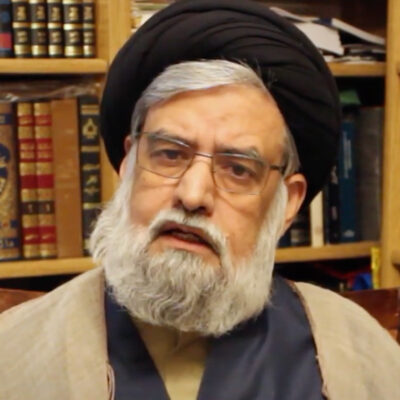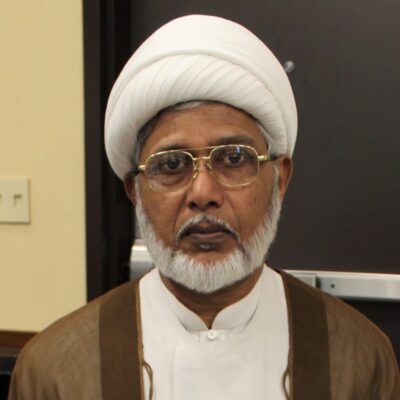Moon-Sighting Committee
Home - Committees - Moon-Sighting Committee
The Moon-Sighting Committee investigates crescent sighting reports and announces the beginning of the lunar months throughout the year.
- Click here to learn about Our Principles in Determining the Beginnings of Lunar Months.
- Click here to learn about The Moon-Sighting Committee System Operation Procedure (SOP).
- Click here for Frequently Asked Questions (FAQs
Members of the Moon-Sighting Committee

Sayyid Muhammad Rizvi
Sayyid Muhammad Rizvi was born into a scholarly family in Bihar, India, and later migrated to Tanzania, where he received his elementary education and studied Arabic and Persian with his father and other scholars. He moved to Qom, Iran, to pursue Islamic seminary studies and reached the advanced (bahth al-kharij) levels under renowned scholars such as Ayatullah Shaykh Wahid Khurāsāni. He also holds a Master of Arts in History from Simon Fraser University. He is currently based in Toronto, where he serves as the Director of the Islamic Education & Information Center and was instrumental in founding the As-Sadiq Islamic School. He is a co-founder of the Council of Shia Muslim Scholars of North America and currently serves as its Secretary-General, as well as the Head of the Urgent and Moon-Sighting Committees.

Shaykh Mohammed Jafar Banglori

Sayyid Dr. Hamed Hashemi
Sayyid Hamed Hossein Hashemi begun his Hawza studies in Qom. He specialized in Fiqh and Islamic law and earned the prestigious award of Best Clergy among thousands. He then embarked on his academic journey, earning a Ph.D. in Jurisprudence and Islamic Law from Tehran University. During and after his Ph.D. studies, he worked as an assistant professor and faculty member at several universities. He has published numerous books and articles on Islamic studies. Several of his publications have been recognized as top research in their field.

Shaykh Amin Rastani
Shaykh Amin Rastani was born and raised in the US. In 1999, after receiving his high school diploma, he traveled to the holy city of Qom to pursue hawzah studies. He was able to complete the introductory and intermediate levels of the seminary, also attending Kharij lessons and eventually returning to the US in the year 2017. He is the founder and lead instructor of the Mizan Institute, lecturing and teaching across North America. He also holds a master's degree in Semitic Religions from the University of Religions and Denominations in Qom.

Shaykh Jafar Muhibullah
Shaykh Jafar Muhibullah began Hawza studies in 1991 in Medina, New York, before moving to Qom to pursue advanced Islamic studies. After completing intermediate studies and beginning Kharij, he returned to the U.S. for graduate studies. In 2005, he received an MA in Religious Studies (with a major in Islam) from Duke University. In 2007, Shaykh Jafar moved to Austin, Texas, where he became the Resident Scholar of the Islamic Ahlul Bayt Association in Austin (IABA). In 2013, he returned to Qom to continue advanced studies in Jurisprudence and research towards a Ph.D. in Arabic literature. He is currently the Resident Scholar of IABA and a board member of the Interfaith Action of Central Texas (iACT).

Sayyid Jawad Sajjadi
Sayyid Jawad Sajadi began his Hawzah studies in the holy city of Mashhad, Iran. After completing the intermediate levels of Hawzah education, he furthered his academic journey in Azerbaijan, where he earned a Doctorate in Medicine. Since 2003, he has dedicated himself to serving a local community in California, supporting their religious programs, educational initiatives, and community development activities.

Shaykh Ahmad Modarres
Shaykh Ahmad Modarres studied at the Hawza of Mashhad & Qom, where he dedicated over a decade to studying Islamic jurisprudence, philosophy, and theology. He also holds a degree in Philosophy and Theology as well as a degree in Psychology from California State University. As the resident scholar at Masjid Al-Rasool in California, Shaykh Modarres provides spiritual leadership and actively engages in community initiatives, including youth programs, family workshops, and personal counseling. He also serves as an advisor for multiple organizations in Southern California, offering guidance on religious and social matters.
The coordinator for follow-up shall be determined by the Committee itself.
